FATHER BEN MAKES HUNDREDS OF KING CAKES
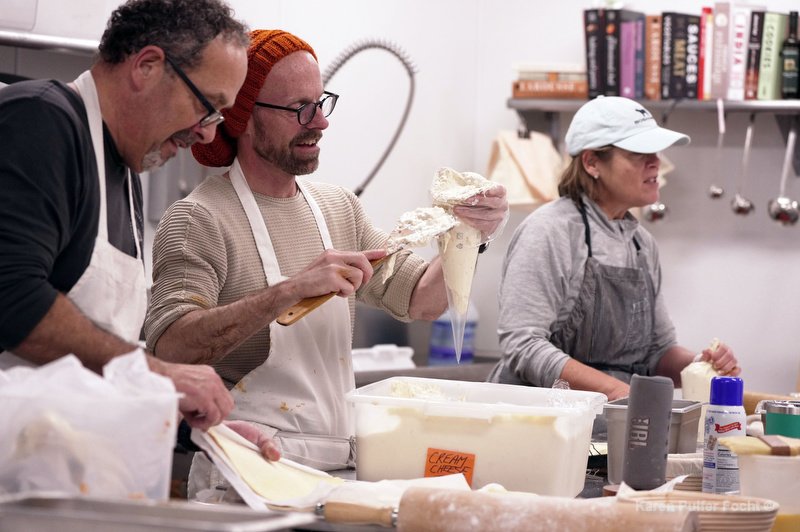
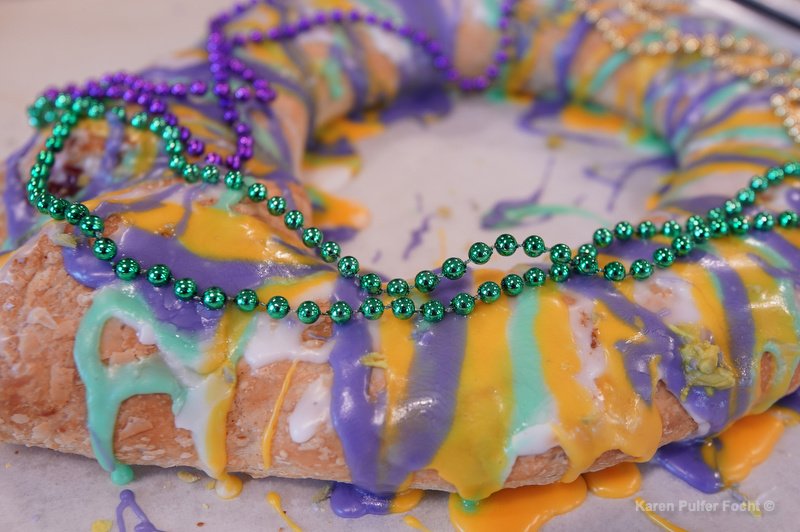
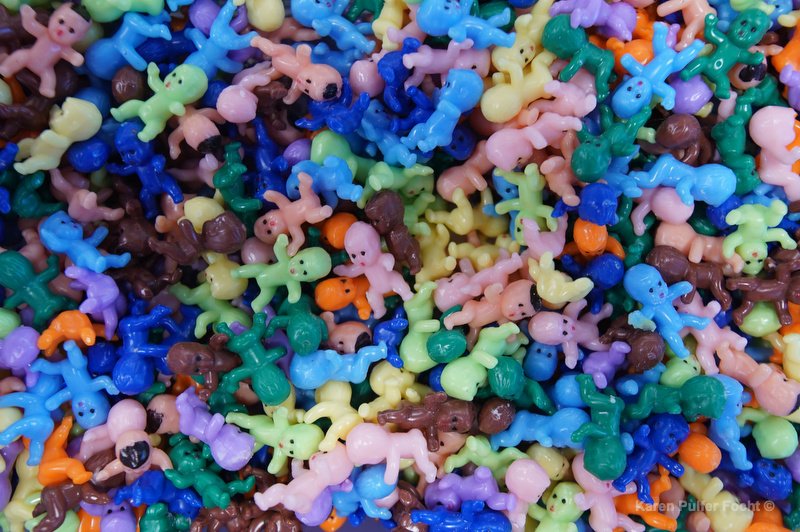
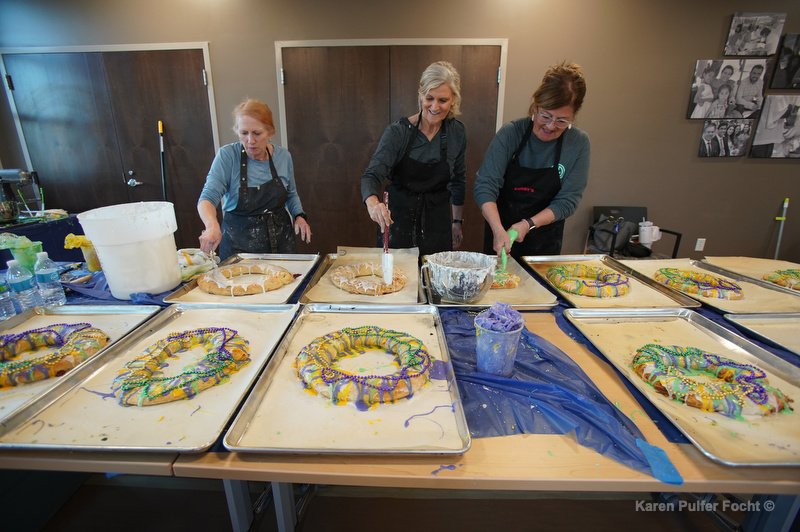
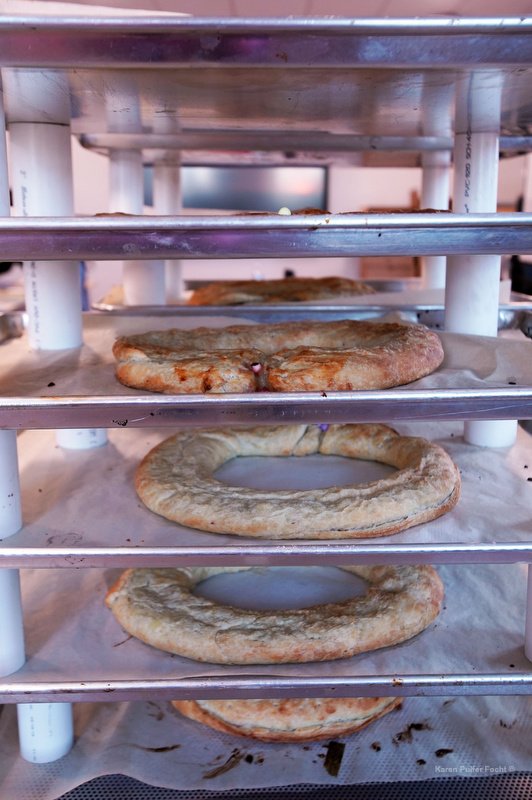
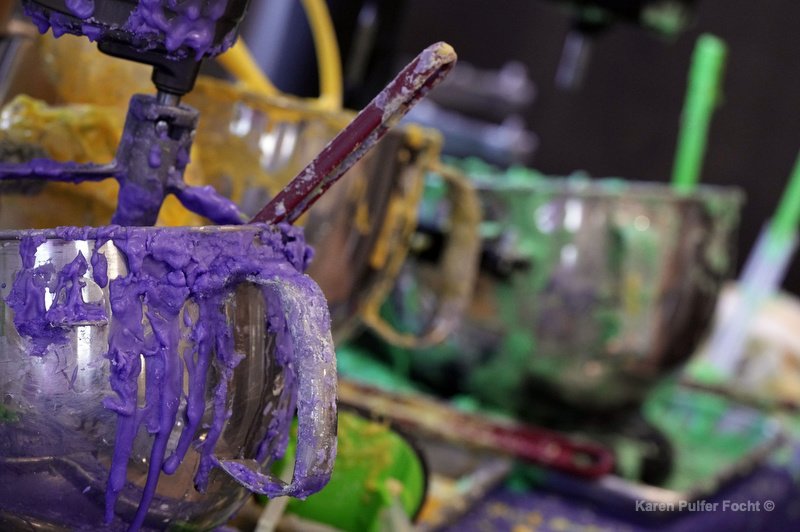
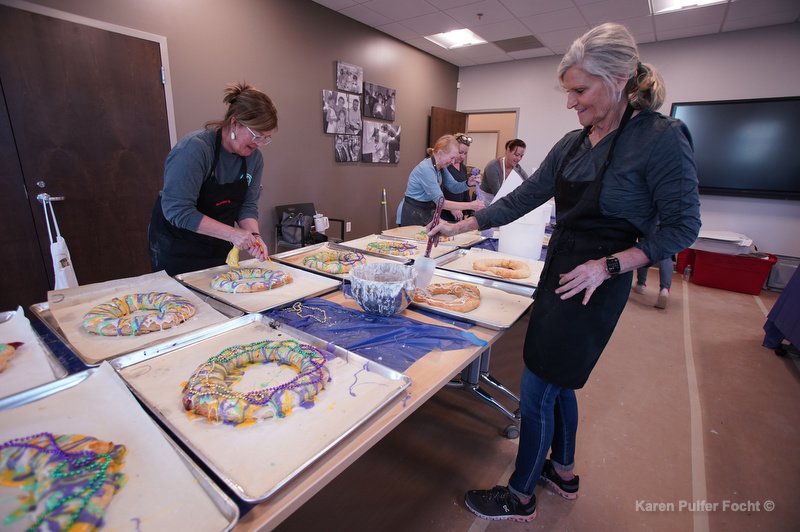
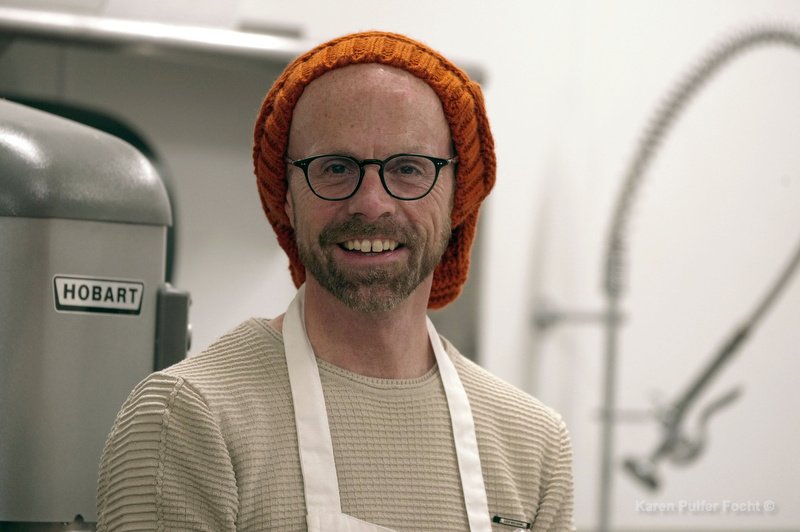
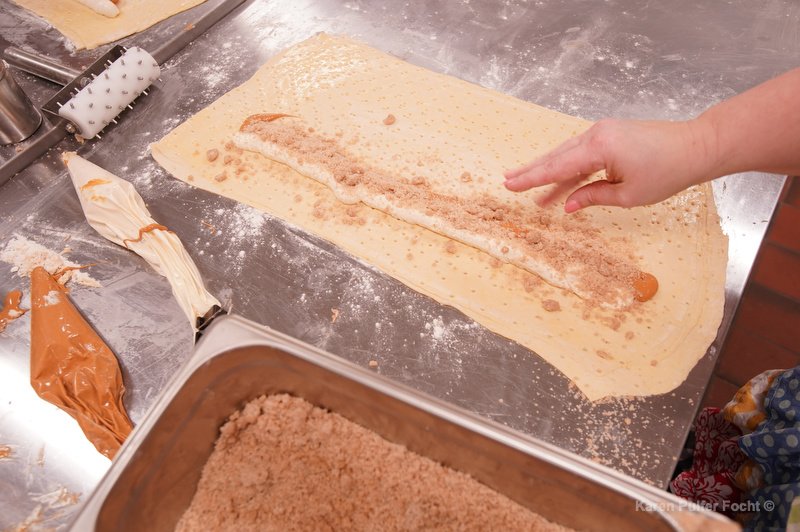
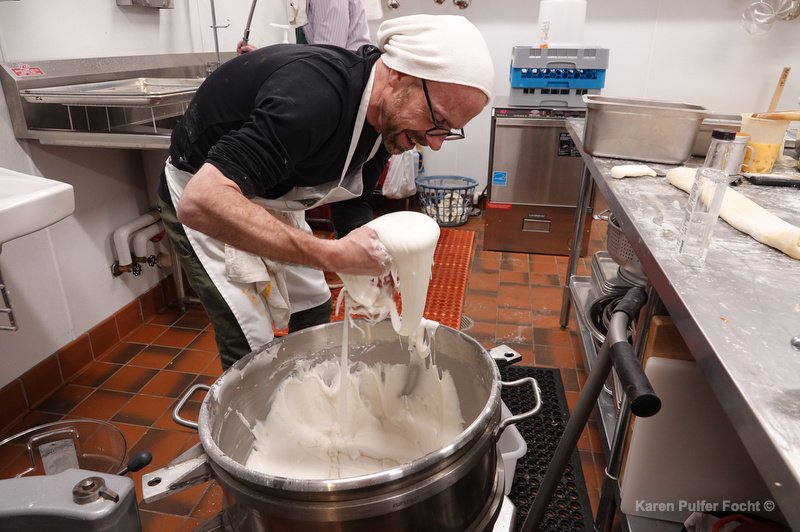
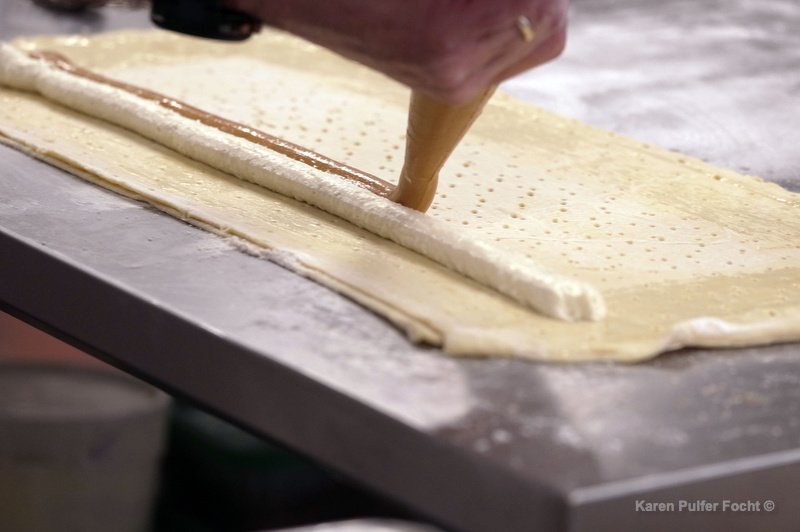
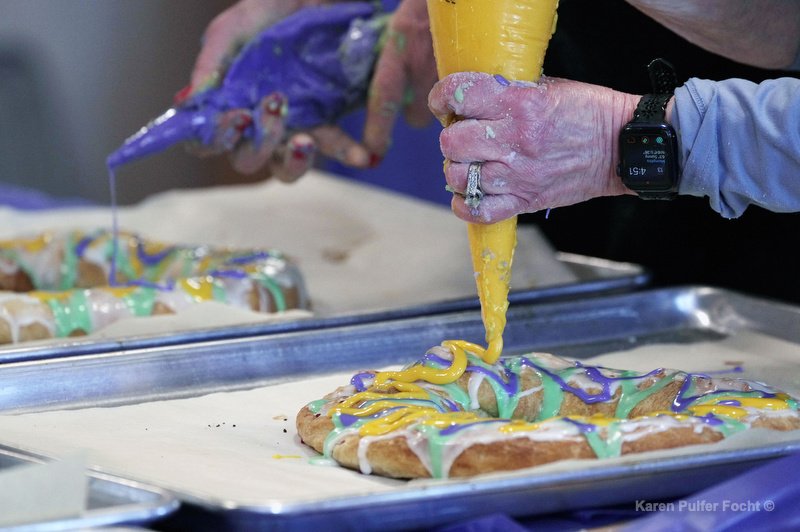
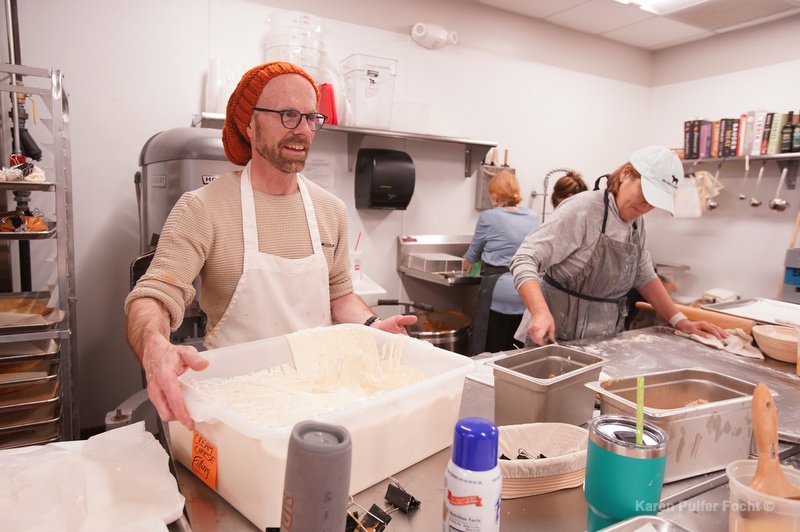
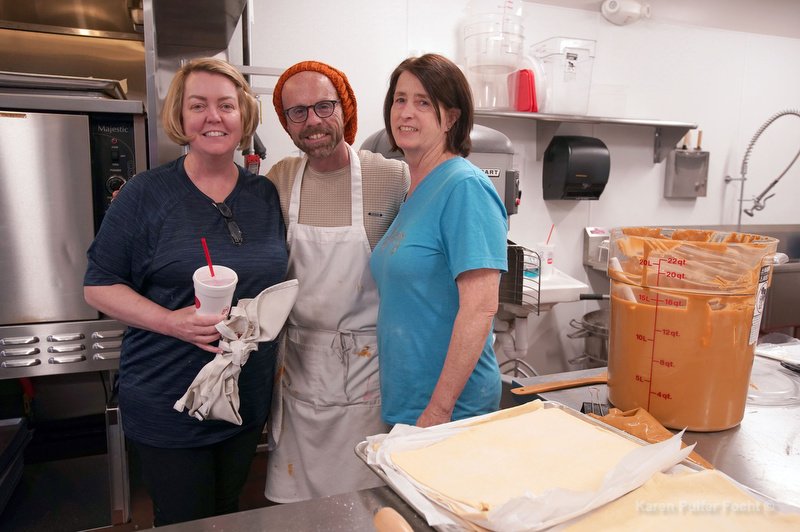
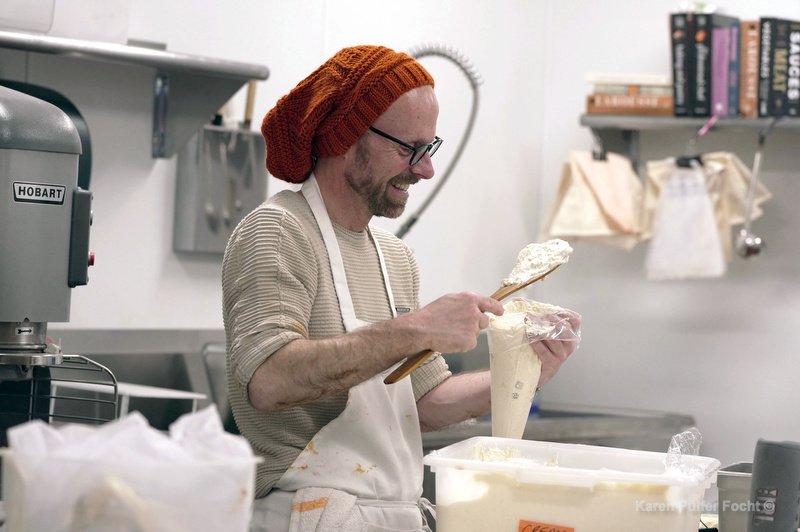
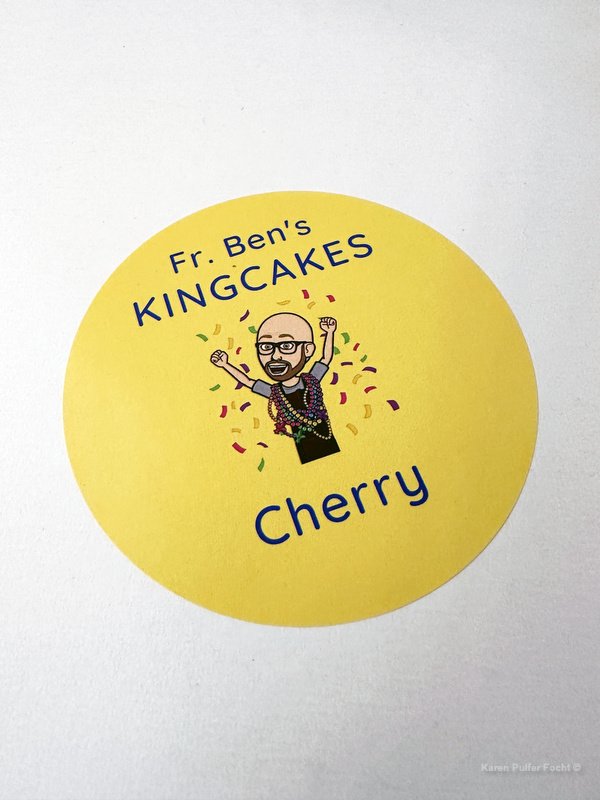
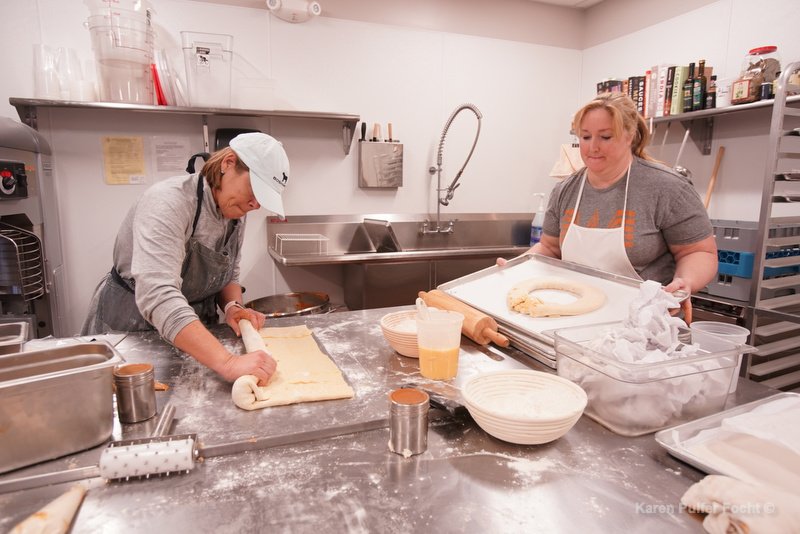
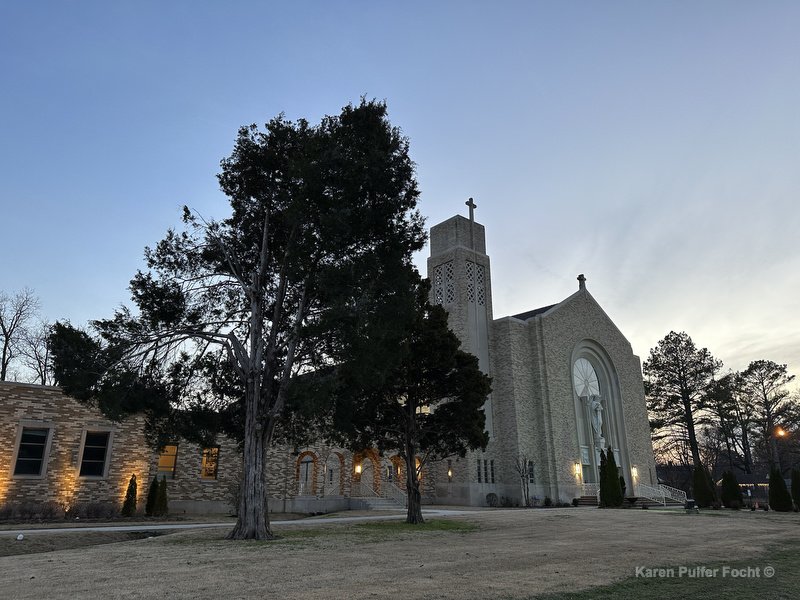
HOW DO YOU MAKE A KING CAKE? (video below)
By Karen Pulfer Focht © 2023
When it comes to raising money for his parish, Father Ben Bradshaw of Memphis really knows how to make the dough.
Father Ben takes the concept of feeding his flock seriously. This priest is passionate about pastry.
As this Lent approaches, Father Ben sacrifices some sleep and heads over to the kitchen at St. Michael’s Catholic Church in Memphis, Tennessee before daybreak.
In the wee hours of the morning, he prepares to make hundreds of King Cakes. Before anyone else shows up, he puts on his apron, his hat and makes large quantities of frosting, dough, and sweet and savory specialty fillings, as he prays in the still hours of dawn.
Before becoming a priest, Father Ben was a chef, and he was trained in France. Now he shares that gift with his church. “We will make close to 700 cakes” he says, with frosting stuck to his elbows. For a week, he rarely stops, and neither do his helpers.
The 20 volunteers squeeze, roll and decorate king cakes each day. They have a very orderly system and workflow. Some roll out the dough in the kitchen, perfectly piping in rich fillings of cream, caramel or cherries. They fold all of that together and then swing it into shape, just right, before laying it onto a baking sheet and bringing it together forming a circle.
They are baked, cooled and then brought into another room where another crew is waiting to ice them.
Mixing machines with brightly-colored green, purple and yellow icing sit in the corner of the room, and the icing is drizzled onto the cakes. Colorful little babies are hidden inside and then Mardi Gras bead necklaces carefully placed over the top of the frosting just right.
The cakes are boxed and then set aside on tables all up and down the hallway of the church office.
King Cakes are a tradition of Mardi Gras. Whoever finds the baby in the cake will be lucky and prosperous, according to the tradition. That person must also bring a King Cake the next year.
Looking out from underneath his large knit slouchy beanie, Father Ben is eager to share his knowledge, asking a visitor to the kitchen, “would you like to make one?” He squats down, scrapes, and plays with huge globs of sticky icing, then pulls it out of a giant vat he says, “I love it, it’s fun!”
“What makes a good pastry chef is being attentive to technique” he says, “for the French, technique is everything. You must be militant about the mixing of ingredients and mix them in a way that works, otherwise it won’t work!”
He says he enjoys the challenge and discipline of pastry.
The money raised from the sale of the cakes will go directly to fund the many ministries in the church. From Souls for Service, a ministry for children and adults with special needs to Burnt Offerings, cigars and conversation for men of the church. St. Michaels offers a little something for everyone to choose from.
The once-waning parish, in an older very diverse neighborhood in central Memphis, is experiencing a resurgence. The parish has grown to about 5,000 families. Each weekend there are seven masses, four in Spanish.
Father Ben smiles, “I wish people could see what I see because when one looks out there, there are people from Laos, Cambodia, Philippines, Eastern Europe, Mexico and south America. I know this because I have eaten in their homes. This is indicative of the church, it is universal.”
Father Ben came from a family with two other priests. “I had thought about becoming a priest my whole life” he reflects, “I was doing a lot of work in the mornings, I spent most of my day alone and it gave me time to pray while I was working.” Praying as the sun comes up became a habit for him.
Father Ben is an extrovert. He has dinner with the people of the church at least 5 nights a week, sometimes six. “It’s never like work, to me it is very enjoyable, and it teaches me a lot. When you do that, its 25 nights a month, you realize what people struggle with.”
He appreciates their candor because, as a celibate man, he says while sharing a meal or a glass of wine, they talk about things he has never thought of. It gives him ideas for his homilies and perspective. “We see patterns in people’s lives, it is really helpful to talk to them.”
In the end, he says warmly, “it’s not really about the king cakes, food is a vehicle to build community and to connect with each other. We are communal by nature.
We need other people; even more than we think we need them.
